MercoPress. South Atlantic News Agency
Latin America
-
Saturday, September 12th 2015 - 09:44 UTC
Seventh meeting of Cristina Fernandez and Francis, this time in Cuba
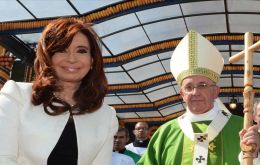
Argentine president Cristina Fernández has formally accepted an invitation by her Cuban counterpart Raul Castro to attend a mass Pope Francis will deliver in the Plaza de La Revolucion in Havana on September 20.
-
Friday, September 11th 2015 - 10:14 UTC
Ecuador's Correa orders dissolution of freedom of expression organization
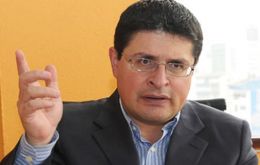
Fundamedios, an Ecuadorian organization that defends freedom of expression, is now the one in need of defense, as it faces state-mandated closure. On Tuesday, September 8, its directors reported that they had received a letter from the National Communications Secretariat (Secom), which informed them of the beginning “of the dissolution process” against the institution.
-
Friday, September 11th 2015 - 06:03 UTC
Venezuelan opposition leader sentenced to 13 years in prison; Unasur statement expected Friday
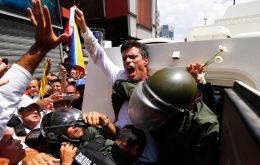
Venezuelan opposition leader Leopoldo Lopez was convicted inciting violence and sentenced to 13 years in prison on Thursday for his leading role in the 2014 street protests against the government of President Nicolas Maduro that spiralled into bloodshed, killing more than 40 people. A statement from Unasur (Union of South American Nations) is expected on Friday.
-
Thursday, September 10th 2015 - 08:33 UTC
Lula da Silva campaigns for Scioli and is full of praise for Cristina Fernandez and the 'K' model
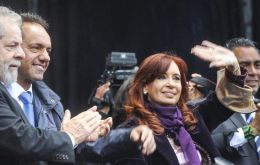
Brazil's popular but scandal-weary former leader Lula da Silva endorsed Argentina's ruling party presidential candidate on Wednesday, identifying Daniel Scioli's credentials with the political left, and hoping the current project “that began in 2003 is re-elected”. The former president was also full of praise for president Cristina Fernandez.
-
Wednesday, September 9th 2015 - 13:10 UTC
A forest area equivalent to South Africa has been lost since 1990, says FAO

The world's forests continue to shrink as populations increase and forest land is converted to agriculture and other uses, but over the past 25 years the rate of net global deforestation has slowed down by more than 50%, FAO said in a report published on Tuesday.
-
Wednesday, September 9th 2015 - 08:10 UTC
No end to Brazil's bad news: two consecutive years of recession ahead

Analysts expect Brazil's economy to contract by 2.44% this year, marking the worst performance since 1990, and inflation will hit 9.29%, the Central Bank said Tuesday. The latest figures represent a downward revision from last week, when analysts expected Latin America's largest economy to contract by 2.26% and inflation to come in at 9.28%.
-
Wednesday, September 9th 2015 - 07:18 UTC
Guatemala former president to face prosecution for a customs fraud scandal
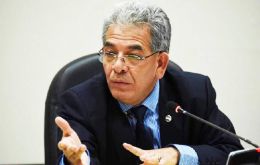
Former Guatemalan President Otto Perez Molina will face prosecution for his alleged role in a customs fraud scandal that has rocked the country for months, a federal judge announced on Tuesday. The decision comes just days after Perez Molina resigned from office amid growing national outrage over corruption in the government.
-
Tuesday, September 8th 2015 - 06:24 UTC
Maduro pledges a comprehensive PetroCaribe plan spanning 2015/2025
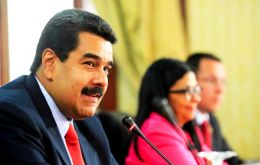
Venezuelan President Nicolas Maduro has pledged to build a comprehensive plan for PetroCaribe, in the next ten years, spanning 2015-2025.
-
Tuesday, September 8th 2015 - 05:39 UTC
Guatemala: Cowboy “Neto” leads on promises to clean the town of corruption
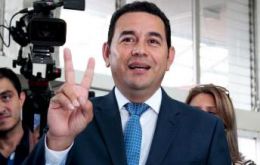
A comedian who played a simpleton cowboy who almost became president emerged Monday as the man to beat in Guatemala's presidential race amid disgust over a corruption scandal that felled the outgoing incumbent.
-
Monday, September 7th 2015 - 09:38 UTC
Argentina and Brazil scheduled to meet Maduro over the border situation with Colombia
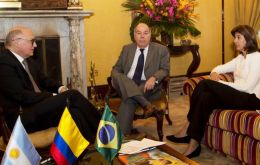
In the margins of the Petrocaribe Summit currently taking place in Jamaica, Venezuelan President Nicolás Maduro will be meeting the foreign ministers of Argentina and Brazil to discuss the border crisis with Colombia.
